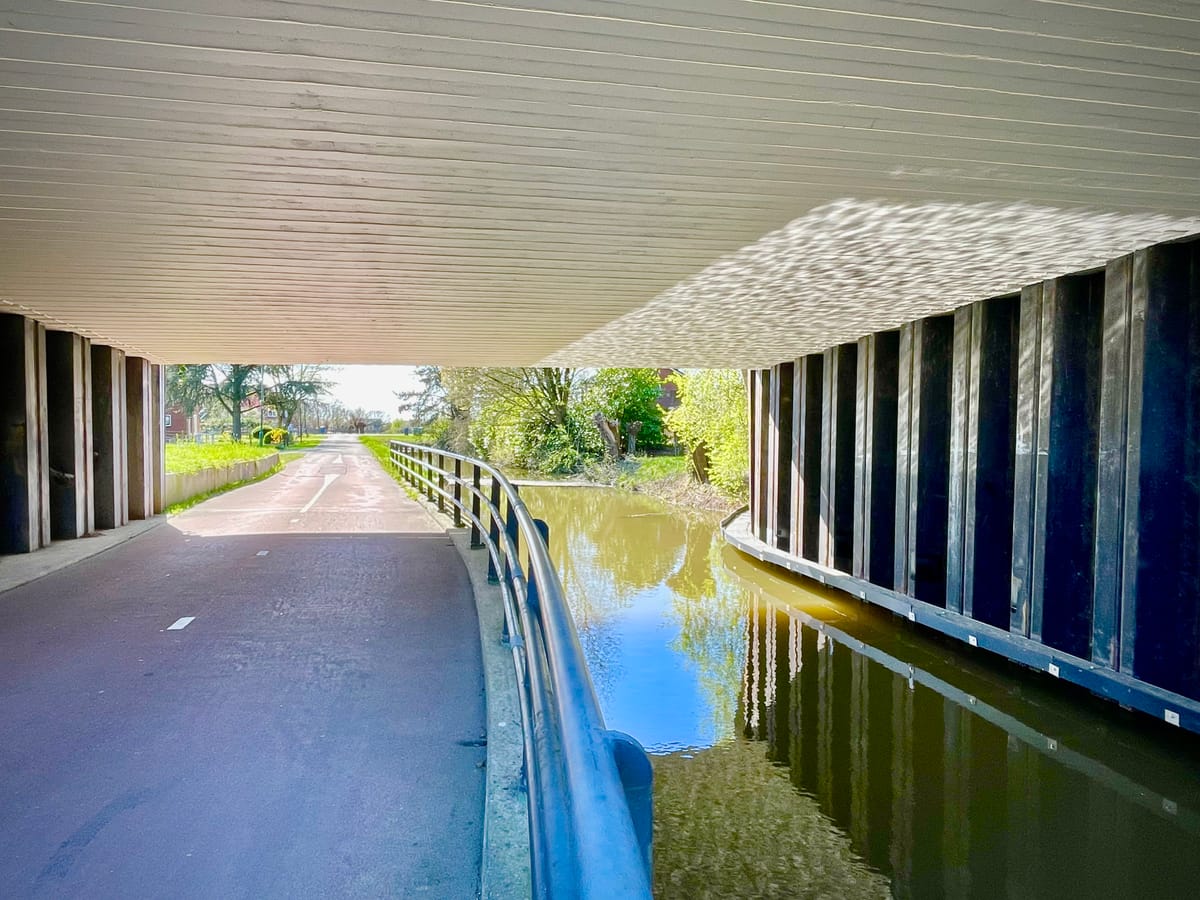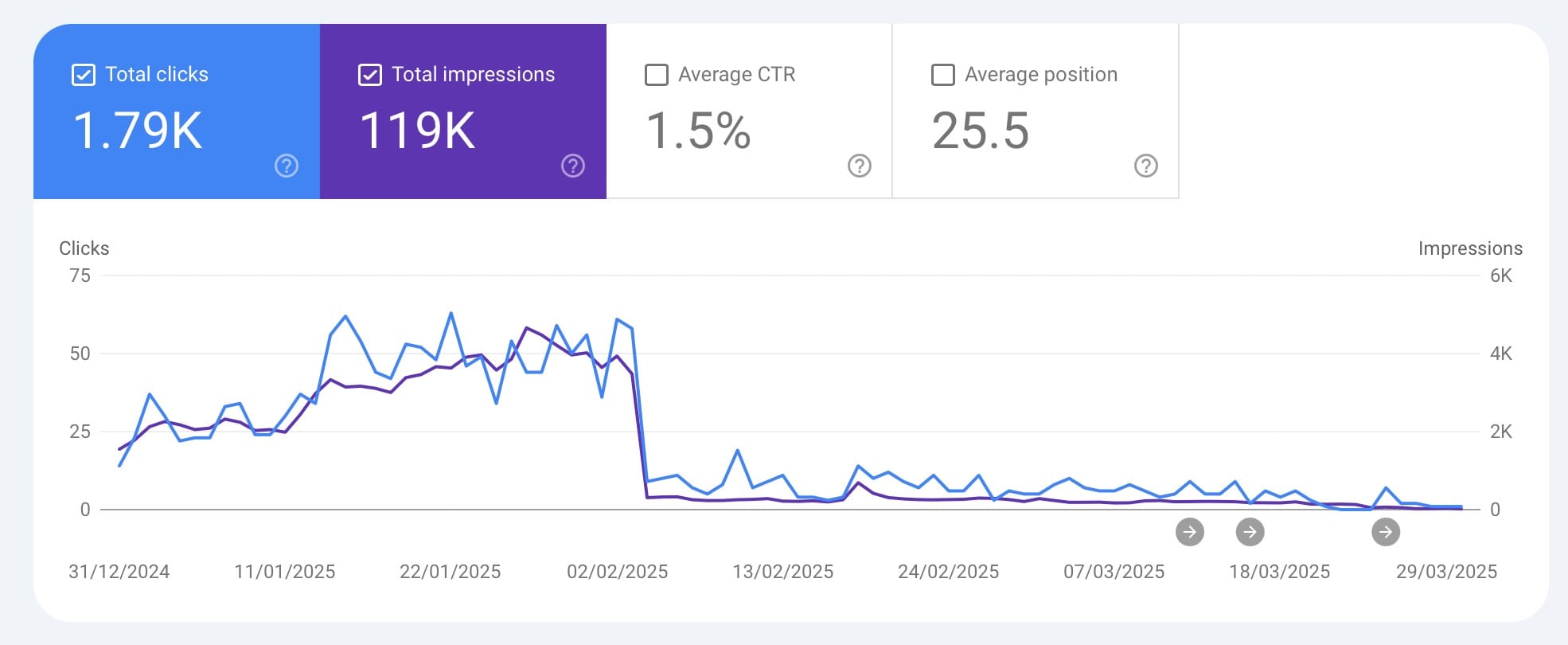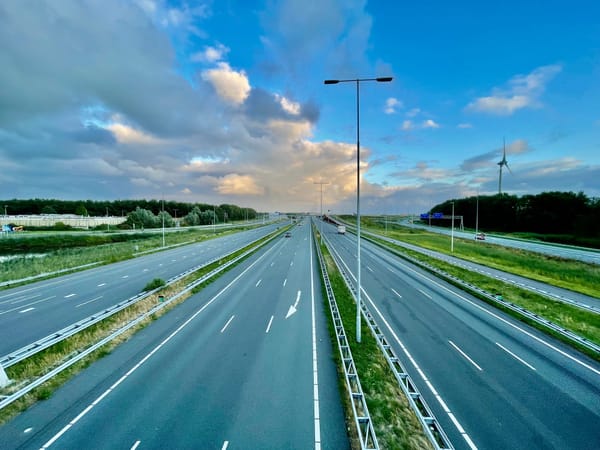The End of Google Search (as we know it)
Google didn’t warn me. It just erased my blog. What looked like a bug turned out to be a glimpse into the future of search—and it’s not built for us anymore.

The Nightmare
It felt like the biggest nightmare for someone who considers Google the main gateway to his audience: my blog, where I write extensively about digital life and the professional world, all but disappeared from the index. Hundreds of pages, suddenly gone.
No warnings, no manual actions—just silence. At first I thought it was a technical error, maybe something related to the domain move I did in December. But the deeper I looked, the clearer the picture became.
It wasn't personal.
It was systemic.
The Cul-De-Sac of SEO Blogging
The kind of blogging I’ve done for years—SEO-driven, informational, high-frequency—has quietly reached a dead end. A cul-de-sac. And while it’s still painful to say, I now understand why.

The Moment of Realisation
What really helped me see it clearly was a conversation I had with Arjen de Hoop (Zeta-Alpha) working on Retrieval-Augmented Generation (RAG) and agent-based browsing systems. He explained how large language models (LLMs) like ChatGPT or Gemini don’t just retrieve documents—they use search engines to navigate the web like an agent.
They’re not reading blogs to be inspired or to find reflections. They’re searching for factual, structured, actionable information—what marketing calls the bottom of the funnel.
That was an eye-opener.
Because what lives at the top of the funnel—where people are still orienting themselves, learning, reflecting, or comparing—is exactly where blogging has traditionally been strongest. It’s where I’ve lived for years as a writer: helping people make sense of the digital world.
Suddenly, I understood. Google is shifting too. Their AI-driven Search Generative Experience doesn’t need orientation content the same way anymore. It needs raw material to shape into an answer—machine-readable, factual, transactional.

The Shift in the Landscape
At first, I took the de-indexing personally. I thought it must have been a technical issue—and to some extent, I still suspect part of it might be. But once I started digging, I found I wasn’t alone. This has been happening for months. Entire swathes of top-of-the-funnel content are being de-indexed.
And while I don’t write spam and I don’t churn out thin content, I do write from a human-first, exploratory angle—exactly what the system now devalues.
The landscape has shifted. Google is evolving toward a hybrid AI/search model. And what it needs now is not just web pages—it needs clean, structured, narrative-ready data to feed its models. It wants to assemble the story, not link to it. It wants to answer the user directly.
So Where Does That Leave Me?
So, I’m not taking it personally anymore. I’m adjusting. This blog will evolve.
The idea that I can write something, wait, and let Google deliver the right audience to me—that idea is gone. From now on, I will share what I learn, directly. Through newsletters, through social media, through communities. Google is no longer my primary amplifier; people are.
That’s a big shift, but it’s also liberating.

This Is the First Step
Something else clicked recently, and it’s worth adding to this picture. Many people have started to notice—and complain—that Google Search isn’t what it used to be. That it’s harder to find thoughtful, human answers. That search is starting to feel empty, even when it's full of results.
And I think this is the missing puzzle piece.
Search is no longer primarily for humans. It’s becoming an index for machines. An index for large language models to build natural-language responses, not to direct traffic to human-written pages. That doesn’t just change how content is surfaced—it changes the reason content exists in the first place.
It means the search engine’s true user may no longer be you. It’s the AI system that’s building answers on your behalf.
That’s the shift we’re in. And we need to reckon with it.
This article is the start of that transition. If you’re a digital professional feeling the same shift, let’s talk about it. We’re not just watching the landscape change—we’re part of the generation that will redefine it.

Last year there already was a realisation things would be changing.
AI Salon Amsterdam






